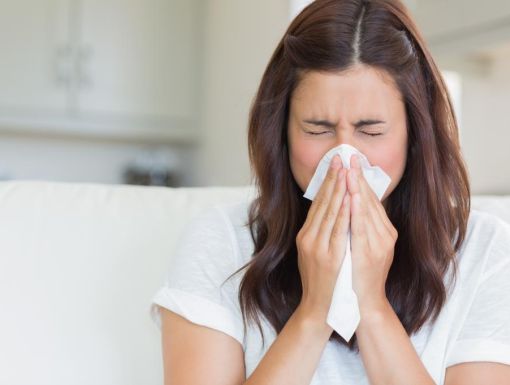
Understanding the Flu: Causes, Symptoms and Prevention
The flu, or influenza, is a common but serious illness that impacts millions of people every year. It spreads easily, and its symptoms can range from mild to life-threatening which is why it is important to know how the flu works and how to protect yourself and others.
What is the flu?
The flu is a respiratory illness caused by influenza viruses. It targets the nose, throat and occasionally the lungs. In extreme cases, flu can lead to death. While anyone can get the flu, certain groups are more at risk, including older adults, young children, people with chronic health conditions and pregnant women.
Flu symptoms often start quickly, about one to four days after being exposed. Typically, these symptoms last for five to seven days, though some people may feel worn out for up to two weeks. The most reliable way to avoid the flu is by getting your flu vaccine every year. The CDC’s Advisory Committee on Immunization Practices encourages people over the age of 6 months old to get vaccinated. Getting a flu shot is a personal decision and should be discussed with your doctor or healthcare provider.
How is the flu different from a cold?
Flu symptoms tend to come on suddenly and are more severe than a cold. A fever, fatigue and body aches are more common with the flu than with a cold. Even healthy people can be infected, but there are people at higher risk:
- People 65 years and older and children younger than 5 years
- Pregnant women
- People with chronic medical conditions, such as asthma, diabetes and heart disease
What are the most common flu symptoms?
Flu symptoms can disrupt your daily life and make you feel miserable. Here are the most common ones to watch for:
- Cough and sore throat
- Fever and chills
- Body aches and headaches
- Extreme fatigue
- Runny or stuffy nose
- Nausea, vomiting or diarrhea (this is more common in children)
Initially, the flu can present as the common cold. Fever and severe tiredness are more likely with the flu than with a common cold. Complications from flu can include ear and/or sinus infections, viral pneumonia, secondary bacterial pneumonia and worsening of chronic medical conditions.
How does the flu spread?
Flu viruses are spread via tiny droplets when infected people cough, sneeze or talk. The droplets can land in the mouth or nose of people in close proximity to each other. Touching a surface that has been contaminated and then touching your mouth, nose or even your eyes is another way you can contract flu, although this happens less often.
How long is someone with the flu contagious?
People with the flu are most contagious three to four days after symptoms start but can spread the virus one day before symptoms appear and up to a week after. Children and people with weaker immune systems may stay contagious even longer.
How can I protect myself from the flu?
Protecting yourself from the flu is possible with a few key steps. Here’s how to avoid the flu this season:
1. Get your flu vaccine: It lowers your chances of getting sick, reduces severe symptoms and helps protect others in your community. Flu shots are available at doctors' offices, urgent care clinics and pharmacies. Patients should discuss flu shots with their physician or healthcare provider to determine what is best for them.
2. Practice good hygiene: Simple habits can make a big difference in flu prevention. Wash your hands often with soap and water for at least 20 seconds. Cover your mouth and nose with a tissue or your elbow when coughing or sneezing. Avoid close contact with people who are sick.
3. Boost your immune system: A strong immune system can help your body fight off the flu. Focus on getting enough sleep, eating healthy foods like fruits and vegetables and staying active with regular exercise.
4. Keep your environment clean: Disinfect commonly touched surfaces like doorknobs, light switches and phones to kill germs. If you’re caring for someone who is sick, wear a mask and gloves to lower your risk.
If you smoke, the flu is yet another reason why you should quit. A study from the U.S. National Library of Medicine National Institutes of Health found that “influenza‐associated hazard ratio was greater in current and ex‐smokers than in never smokers for mortality of all-natural causes, cardiovascular and respiratory diseases.” The study also concluded that smoking may increase the risk of death in older people with influenza.
What should I do if I get the flu?
Rest as much as possible. Allow your body time to recover. Drink plenty of fluids, such as water or electrolyte drinks, to stay hydrated. Over-the-counter medications like acetaminophen (Tylenol) or ibuprofen (Advil) can help reduce fever and ease body aches.
When should I see a doctor for the flu?
Most flu cases can be treated at home, but certain symptoms mean you should seek medical attention right away. These include:
- Trouble breathing
- Persistent chest or stomach pain
- Dizziness or confusion
- Severe vomiting
- Symptoms that improve but then worsen
The combination of yearly flu vaccines, good hygiene and healthy habits offers the best flu protection for yourself and your community.
Visit any Ochsner Urgent Care or schedule a virtual visit if you have the flu. Learn more.



